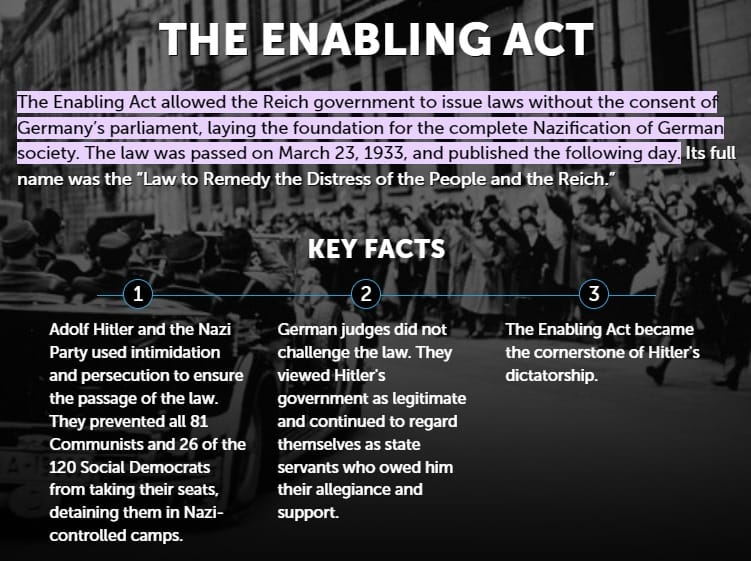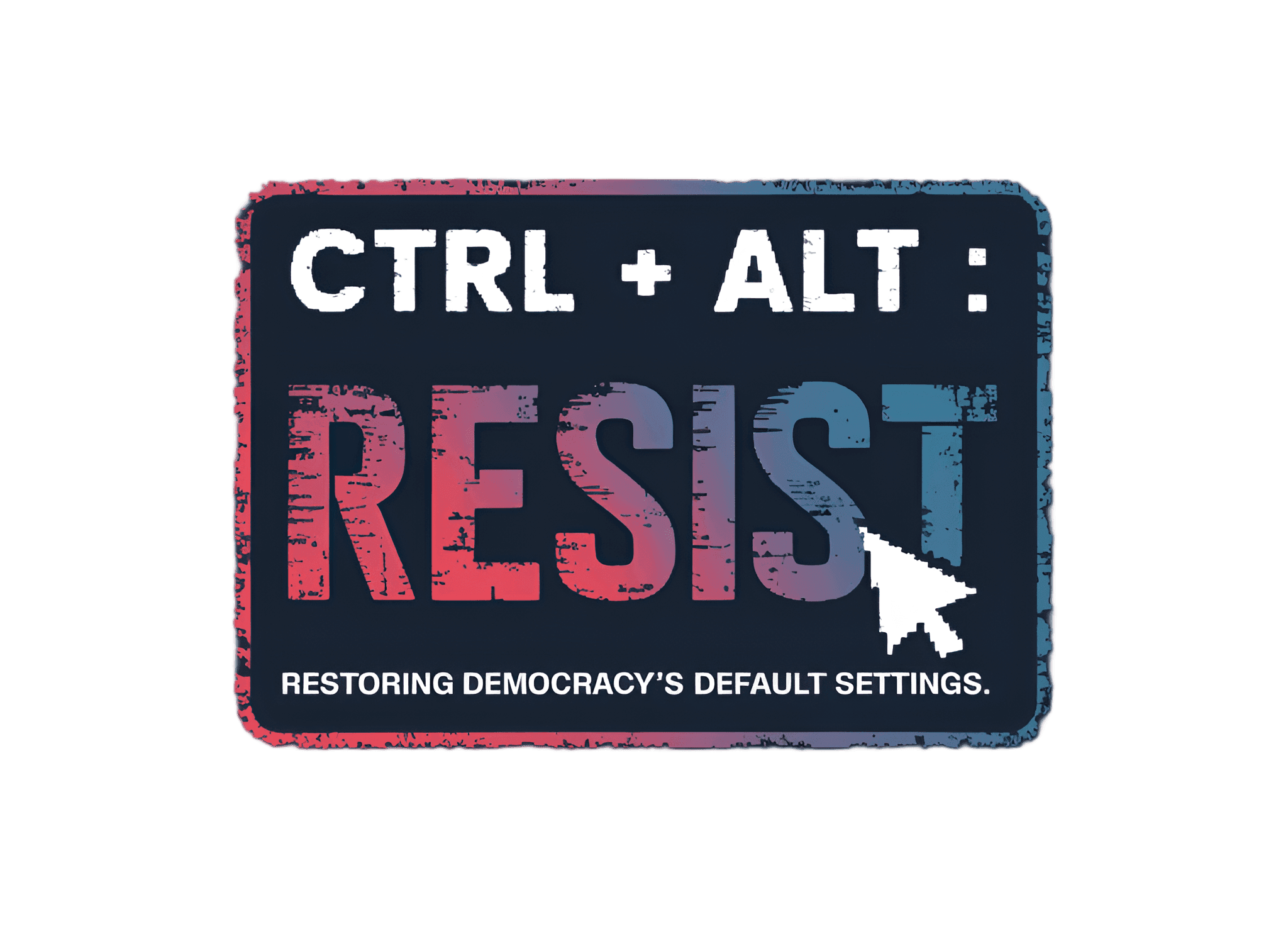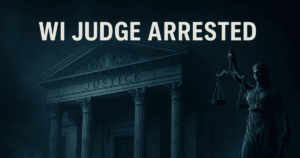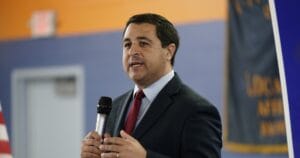
92 Years Ago Today: How Democracy Died in a Single Vote
Jump to:
When Democracy Votes for Its Own Destruction
Today marks exactly 92 years since one of history’s most chilling parliamentary votes. On March 23, 1933, Germany’s Reichstag passed the innocuously named “Law to Remedy the Distress of People and Reich” – better known as the Enabling Act – effectively voting democracy out of existence with a stroke of a pen.
The significance of this date cannot be overstated. This wasn’t merely another piece of legislation – it was democracy’s suicide note. With a two-thirds majority, the remaining lawmakers in Germany’s parliament transferred their legislative powers directly to Adolf Hitler’s cabinet, allowing him to enact laws without parliamentary consent or constitutional limitations.
Let that sink in. A democratically elected body voluntarily surrendered its power, giving Hitler the legal framework to dismantle all remaining democratic institutions and establish his dictatorship not through revolution, but through a veneer of legal procedure.
A Vote Under the Shadow of Fear
The circumstances surrounding this fateful vote reveal how fragile democratic institutions can be when faced with intimidation and crisis. The Kroll Opera House, where the Reichstag convened after the fire, was surrounded by members of the SA and SS – a blatant show of force meant to intimidate anyone who might consider opposing the measure. As multiple historical accounts confirm, the vote took place in an atmosphere of palpable menace and fear.
Even more disturbingly, the 81 elected Communist deputies – who would have certainly opposed Hitler’s power grab – could not cast their votes. They had already been arrested, intimidated into exile, or were in hiding following the Reichstag fire and the Nazis’ crackdown on the KPD. Their absence was no accident but a calculated elimination of opposition voices.
“You can take our lives and our freedom, but you cannot take our honor. We are defenseless, but not without honor.”
— Otto Wels, SPD Leader, March 23, 1933
His was among the few voices that dared stand against the tide of authoritarianism engulfing Germany.
The Fatal Compromise
Perhaps most disturbing was the role of the Center Party, Germany’s Catholic conservative party, which held the swing votes that could have blocked Hitler’s power grab. These weren’t Nazi ideologues but mainstream conservatives who convinced themselves that compromising with Hitler was the pragmatic choice.
They negotiated supposed “guarantees” from Hitler regarding religious freedoms and the continued existence of the federal system – promises that were soon broken. In their misguided belief that they could control or moderate Hitler, they became the enablers of dictatorship.
The Center Party’s leader, Ludwig Kaas, defended the decision by claiming they were averting civil war and greater chaos. History has judged how catastrophically wrong that calculation proved to be.
A Warning Across Time
What makes the Enabling Act so profoundly unsettling is not just its consequences, but how it was achieved. Hitler didn’t need to abolish democracy through outright revolution; he manipulated its mechanisms to destroy it from within.
His approach was methodical:
- Create a crisis atmosphere (the Reichstag fire)
- Eliminate opposition voices (the Communist deputies)
- Intimidate those remaining (SA troops surrounding the vote)
- Offer false promises to the undecided (Center Party “concessions”)
The Enabling Act stands as history’s starkest warning about how democracies can die – not always through violent overthrow, but through legal mechanisms corrupted by fear, manipulation, and the misguided belief that democratic institutions can survive compromise with those who fundamentally reject democratic values.
Democracy’s Eternal Vigilance
Today, as we mark this somber anniversary, the lesson resonates with renewed urgency. Democratic institutions are not self-sustaining; they require constant defense by citizens and leaders committed to their preservation.
When political leaders frame opposition as enemies of the state, when they describe critics as traitors, when they portray themselves as the lone solution to a nation’s problems – these are echoes from a playbook we’ve seen before. History may not repeat itself exactly, but its patterns provide warnings we ignore at our peril.
The Enabling Act reminds us that democracy’s greatest threat isn’t always external attack but internal erosion – the slow surrender of principles in the name of expedience, security, or partisan advantage.
“The European history of the twentieth century shows us that societies can break, democracies can fall, ethics can collapse, and ordinary men can find themselves standing over death pits with guns in their hands.”
— Timothy Snyder, On Tyranny
On this anniversary, we would do well to remember that democracy dies not in dramatic moments that announce themselves as historic, but in a series of small surrenders that, only in retrospect, reveal themselves as fatal.
A Legacy That Demands Attention
Ninety-two years after that fateful vote, the Enabling Act stands as democracy’s tombstone in Germany’s darkest hour. It reminds us that constitutional safeguards alone cannot protect freedom. Ultimately, democracy depends on citizens and leaders who value it more than power, more than partisan advantage, more than temporary security.
As we mark this anniversary, perhaps the most fitting tribute to those who lost everything in the darkness that followed is to recognize the warning signs when democratic norms and institutions come under pressure – and to stand resolutely in their defense before it’s too late.
For if history teaches anything, it’s that the price of liberty truly is eternal vigilance – and that the most dangerous words in any democracy may well be “it can’t happen here.”
What are your thoughts on this issue? Join the conversation below.



